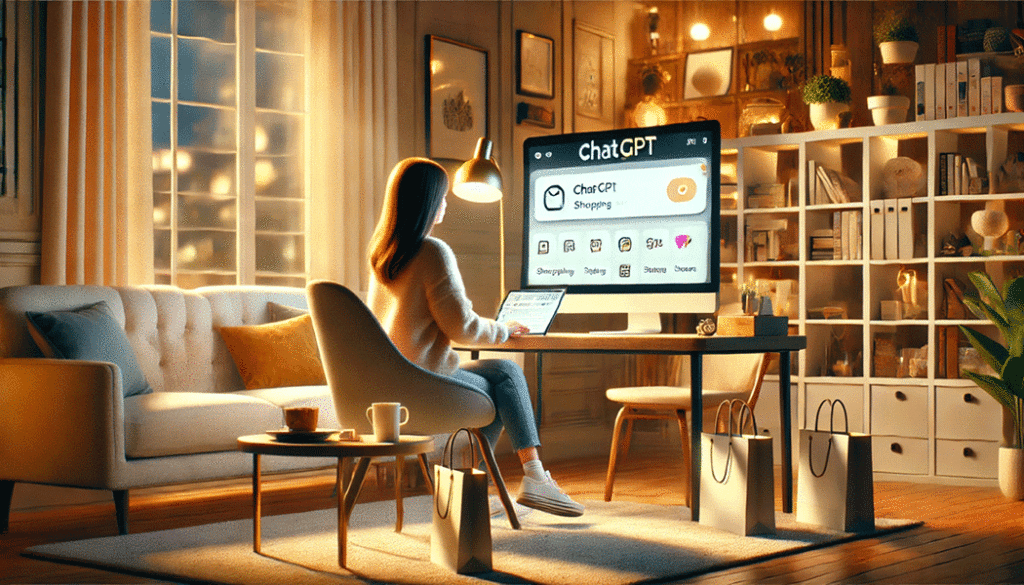
Not for the first time, a coyote decided to attack one of my trail cameras. He succeeded in knocking it down and tearing the mounting strap into six pieces. So yes, these straps do sometimes need to be replaced.
I decided to order some, and wondered if ChatGPT could help me shop. So I gave it this prompt: “I need to buy some replacement straps for my trail cameras. The straps are used to mount the cameras on trees so they can take videos of wildlife. Please search Amazon, Walmart, and Google. I’d like to buy four to six straps. Ideally, I’d like to pay less than $4 per strap.”
It took just seconds for ChatGPT to do the searches and respond with five options, four of them from Amazon and one from Walmart. In each case, it told me the price for the bundle of straps and calculated the cost per strap.
I ended up getting a five-pack at a cost of $2.60 per strap.
The experience was transformative. Just as I no longer use Google in favor of AI chatbots, I will now no longer go through the tedious process of searching for a product. I’m finding that ChatGPT can somehow search multiple sites in seconds and find what I want.
Searching Amazon had become painful. As with Google, searches were littered with ads and irrelevant results. All that clutter is gone when I use AI to look for a product.
I was also in the market for a Bluetooth speaker, so I asked ChatGPT: “A friend has a large-screen monitor connected to an 11-inch laptop that’s often used for streaming video or playing DVDs. The laptop speaker isn’t loud enough. I’d like to buy a portable Bluetooth speaker. Nothing fancy, and something that’s simple to use. What do you suggest?”
In seconds, ChatGPT came up with two highly rated options, with four summary bullet points about each one, including approximate price. Turns out the JBL was on sale for $79, so that was my choice.
(Note that ChatGPT had defaulted to its large language model to provide the answer, so I had to ask it for links to the two speakers.)
There are two lessons here. One is prompting. Talk to ChatGPT and other AI chatbots just like you would a person. No more keyword searching.
The second is that this may be a simple example of the next wave of AI development. We’ve covered three waves already: large language models, retrieval augmented generation, and chain-of-thought reasoning. This new wave is being referred to as “agents.”
An agent is when you use AI to complete a specific task—even to the point of taking over your computer and autonomously going through a series of steps to complete that task. Instead of asking it a question, you give it instructions and then let it do the work. In the case of the camera straps, I gave it instructions to search multiple vendors.
The major AI companies are all now racing to release agent capabilities. Anthropic was the first to come out with theirs in October: the “Computer Use” feature of Claude Sonnet. It’s primarily of use to software developers but can also assist you with web-based tasks. By the time you read this, Google’s new agent should be available. It reportedly will work within the Chrome browser and is designed to automatically perform a variety of everyday web-based tasks such as purchasing products, filling out forms, and researching and booking flights.
Getting back to shopping, Perplexity now has a new shopping feature that I was eager to try. I wanted a new shirt, so I asked: “Please search Land’s End for a men’s shirt with neck size 14 or 14 ½ and button-down collar. I’d like a slim fit. All cotton. Light color. With pinstripes.”
In seconds it gave me four products, one of which I chose at a (Black Friday) price of $27.
It’s so much faster and more convenient than going to the website and spending time looking around for what I want. Perplexity does a fairly good job of finding what you’re looking for and letting you compare the options at a glance. You can even upload a photo of an item and Perplexity will help you find the product.
If you subscribe to the Pro version ($20/month), you can buy with one click, plus get free shipping.
One last example. I asked ChatGPT a question about a particular probiotic that I’ve begun using. After it answered my question, I asked where I could buy it for the lowest price. It gave me three results, all of which were much cheaper than $1 per capsule that I had paid at Walmart. I ordered from Costco at a cost of $0.43 per capsule (plus free shipping).
Convenience and cost savings—what’s not to love about AI?
Find column archives at JimKarpen.com.
